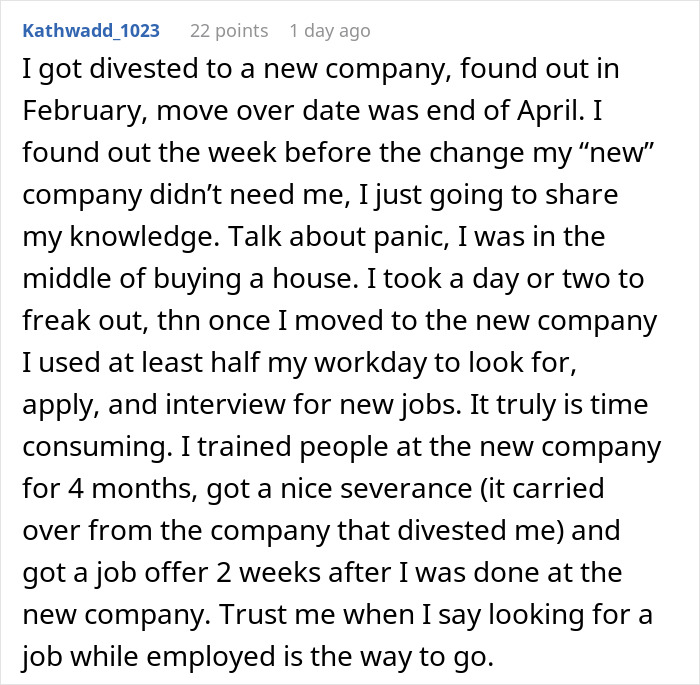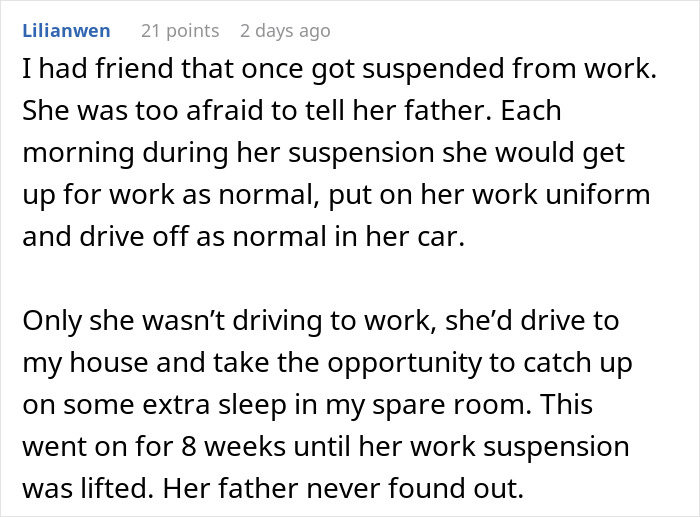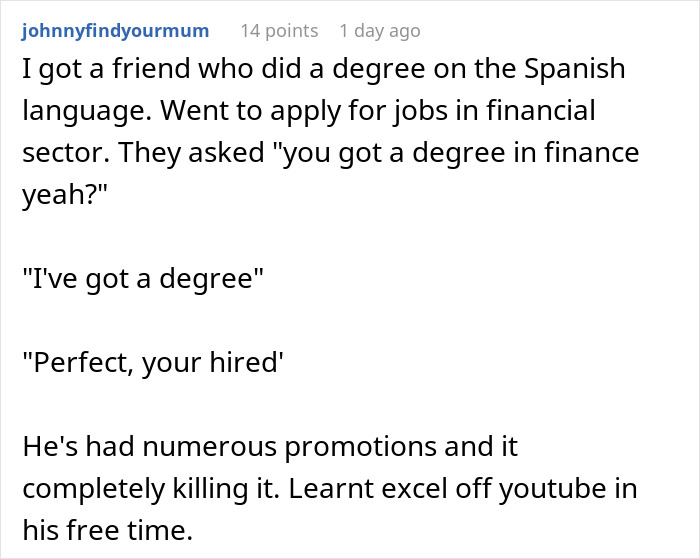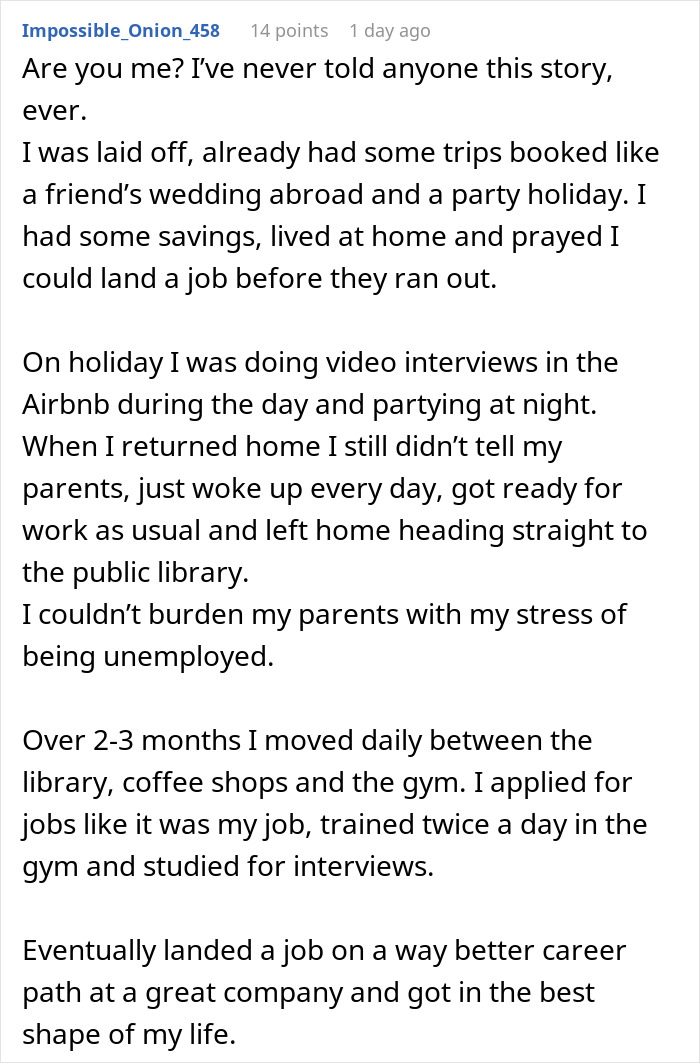What would you do if you suddenly got laid off from work? Maybe panic a bit? Wallow in self-pity? Find support in friends and family? Start looking for a new job? It’s a horrible thing to go through, especially if you have bills to pay and people depending on you. But it happens often. Around 1.5 million Americans are laid off every month, according to some statistics.
One person’s world was turned upside down when they lost their job via a short Zoom call. Not knowing what to do, the person spent the next few months in denial. Keeping up appearances and pretending to be gainfully employed. They treated the layoff as a dirty little secret, going as far as creating fake LinkedIn posts. Everything changed when a recruiter spotted their lies.
Losing your job unexpectedly can come as a huge shock, and you might not want anyone to know

Image credits: freepik (not the actual image)
When it happened to this person, they spent the next few months acting as if they were still employed
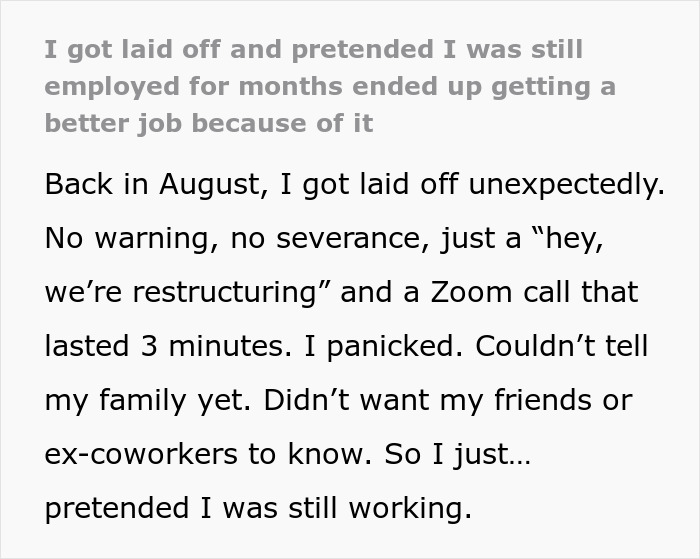
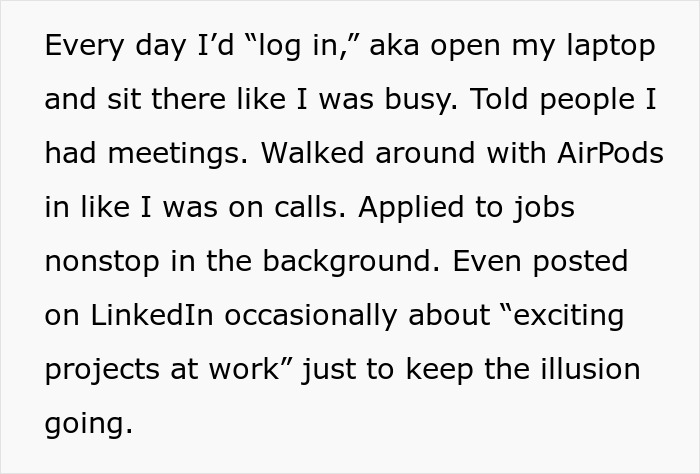
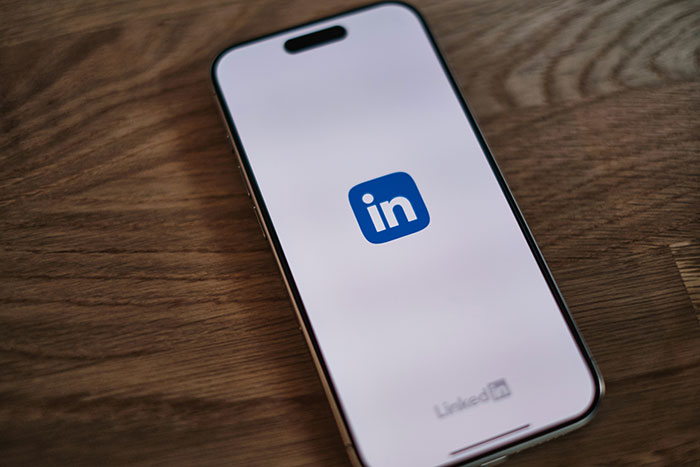
Image credits: appshunter.io (not the actual image)
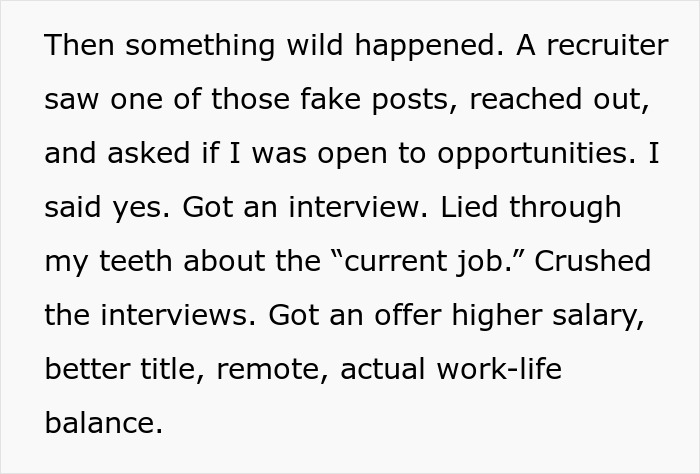
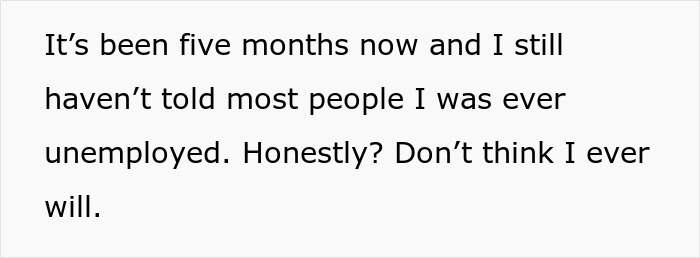

Image cerdits: Getty Images (not the actual image)
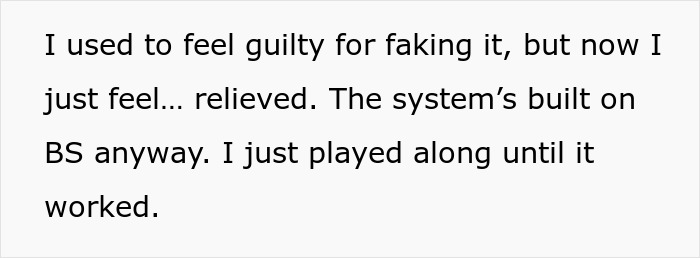
Image credits: VelvetViiibes
“Don’t go out of your way to mention it, but don’t outright lie”: a hiring manager’s advice
It turns out the employee isn’t the only one who has been in this situation. A quick Google search reveals that lots of people reach out for advice about whether it’s okay to pretend to still be employed after losing your job.
One post on Ask a Manager reads, “In the interview… They directly asked if I was currently working at my last company, and I panicked and said yes. (My after-the-fact justification is that I am working a bunch of side gigs to make ends meet while I look for something permanent and full-time. But, still. I lied. And I feel terrible about it.)”
The person writes that after getting laid off, a recruiter had advised them not to tell the hiring company that they’re unemployed while interviewing for a job. But they feel guilty.
In response, a manager warns the poster that they could easily be caught. And should that happen, it would be a “deal-breaker.” The expert goes on to explain that when the recruiter said “Don’t tell them you’re unemployed”, it most likely meant “don’t go out of your way to mention it, but don’t outright lie.”
In other words, you advise the manager, and you don’t need to proactively announce it, but if you’re directly asked, “Are you still at your last job?” you need to tell the truth. However, she adds that what’s done is done and there is no point in coming clean now, as it will probably just create drama.
“It’s true that employers sometimes are biased toward people who are employed,” says the manager, Alison Green. “But that’s usually a case of more extremes, like they’d prefer to hire the employed person over the candidate who hasn’t worked for the last three years. Someone who’s been unemployed for a month? That’s barely likely to register.”
“When you are out of work for a long time… The question in an employer’s mind is not whether you have forgotten something, but whether you ever knew it to begin with,” adds recruitment expert, Jeff Altman.
How one woman’s lies landed her a 25-month prison sentence and a $22,000 fine
When you lie on your CV, LinkedIn, or in an interview, you don’t only risk not getting the job. You might face more serious consequences, warns LegalDepot.com.
“There is no such thing as a white lie in the eyes of an employer,” reads the site. “Many employers consider lying in your job application to be fraud.” Fraud is a criminal offense in the United States and beyond. Depending on what state or country you find yourself in, you could face a fine or even time behind bars.
“Aside from firing or fining an employee, a company can also sue an employee who misled them if they can demonstrate that it hurt their business,” warns the site.
In 2019, an Australian woman was sentenced to 25 months in prison and fined the equivalent of more than USD 22,000 after she faked “glowing” references and lied about her education to get a high-paying government position.
Veronica Hilda Theriault, 46 at the time, was convicted of deception, dishonesty, and abuse of public office, reported CNN. She had applied for a chief information officer role, which came with an annual salary of around USD 185,000.
After landing an interview, Theriault posed as a previous employer during a reference check. And gave herself “glowing feedback” about her own performance. But wait, there’s more. The woman took her “performance” one step further,
by using a photo of supermodel Kate Upton as her LinkedIn profile photo. And, once she started her chief information officer position, she went on to hire her brother. Even though he didn’t meet the requirements for an advertised role.
The court also heard that she had a history of faking it to make it and that Theriault had previously used resumes with false information to obtain employment at two companies in 2012 and 2014. The woman’s lawyers said she was “deeply ashamed and embarrassed.” But it was too little, too late.
“Well played!” Many people saw nothing wrong with the person’s actions



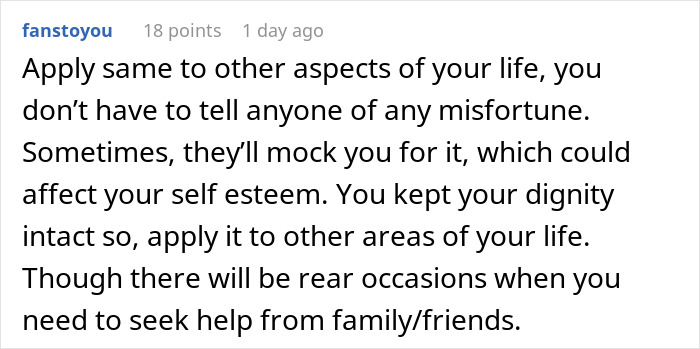
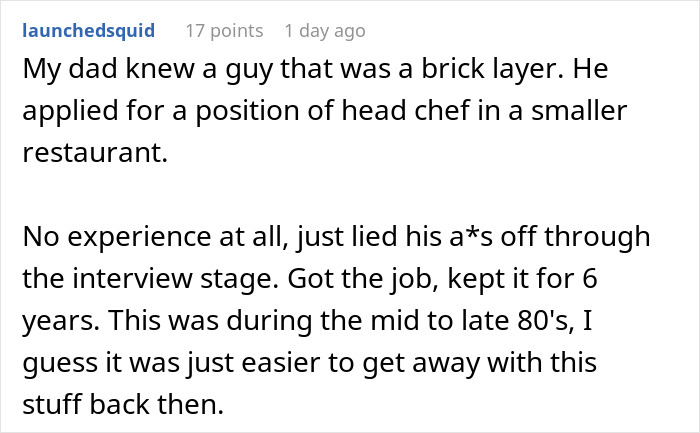
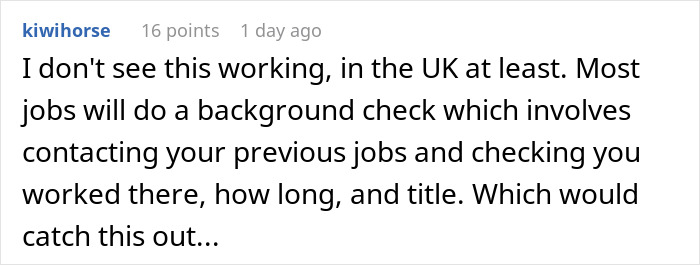
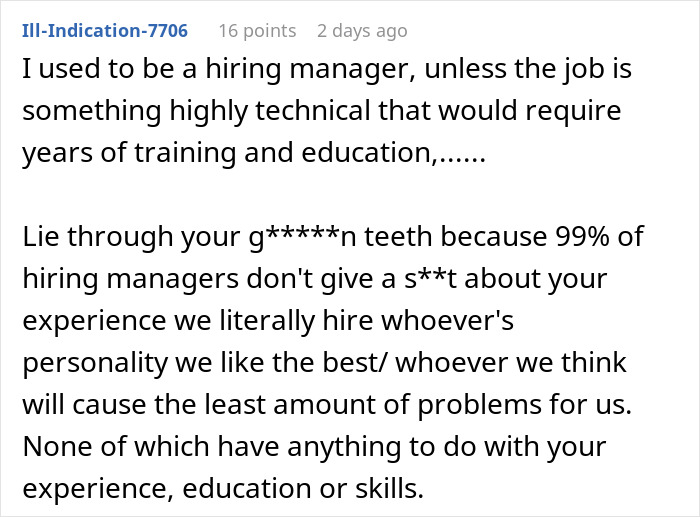
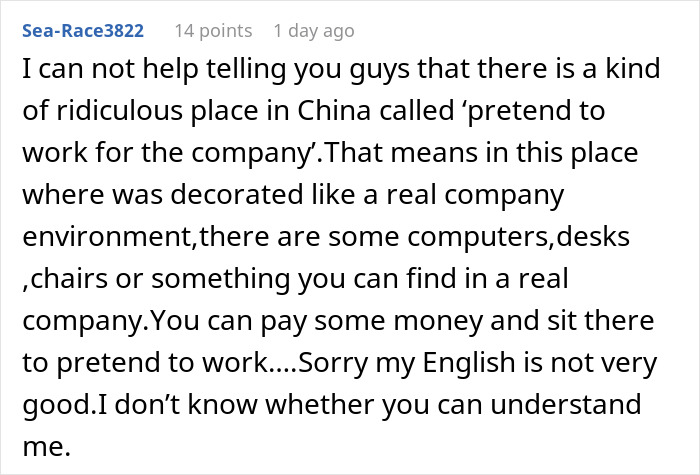








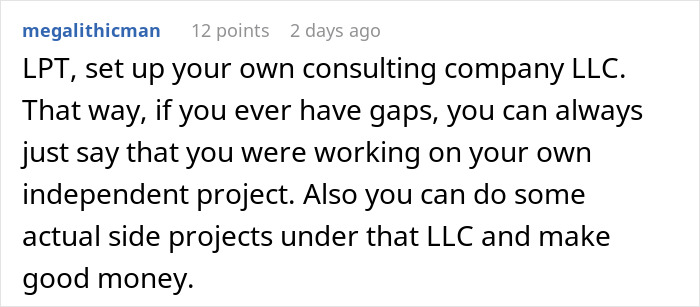
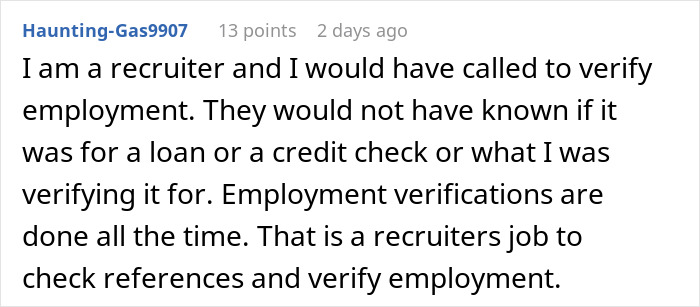


It turns out the person isn’t the only one who’s pretended to be employed
